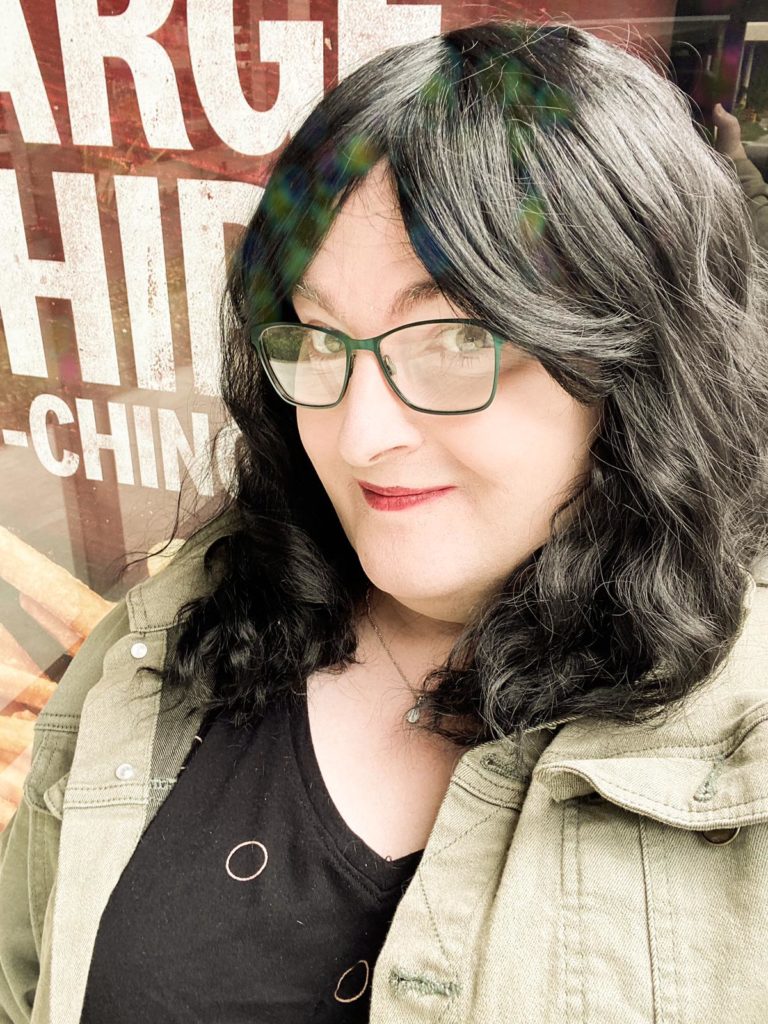
Marcher Sarah Alice Allcroft on the importance of LGBTQIA+ (specifically trans and gender diverse) inclusion in intersectional feminism.
If you’ve been reading Australian newspapers over the last few years, you’d be forgiven for thinking that the transgender community in Australia (let alone anywhere else) is this epic juggernaut in some David vs Goliath-esque showdown against JK Rowling, anti-trans radical feminists (or more commonly known as TERFs), and far-right politicians/Christian groups like Mark Latham and the Australian Christian Lobby respectively. In reality however, the LGBTQIA+ community as a whole comprises roughly 3% of Australia’s population (according to the 2014 census), trans and gender diverse people make up a fraction of that cohort. So, what we’re dealing with is a minority within a minority.
One of the most common refrains from the more radical sides of the feminist community (and of course, the men who want to jump in on something because transphobia is the new socially acceptable form of bigotry) is “why do we have to pick up their fight” or “why do they have to attach their issues to women’s rights?”. From the moment the first keystroke is made, or the first sound in the sentence is uttered, the minority (a particularly vulnerable one) is immediately “othered”, a tactic that forces a group of people so far beyond what people would normally show consideration for that they become some kind of abstract, or worse? A potential threat.
The growing public discourse on transgender rights and healthcare is one that has been hijacked by a very strategic group of social and political conservatives who have worked out that it is the perfect wedge issue for them to begin chipping away at the thing they’ve failed at since women’s rights became a thing. In the case of Mark Latham and One Nation in particular, I struggle to see this as anything more than trying to find a new target to beat down on so as to remain relevant now that immigration and asylum seekers aren’t the boogeymen they got into power on. This doesn’t detract from how utterly destructive this is to the transgender community, and especially children who will face an exponentially more difficult time growing up when more of the system is geared against them.
In relation to the transgender community in particular? According to research out of the University of Melbourne, trans identifying people have a 43% risk of attempting suicide, and a 63% risk of self-harm. These statistics are horrifying just on their own, but when paired with the increasing public hostility toward a group of people that have had to fight every day to either hide who they are, or fight for people to accept them for the very same thing? These numbers are only going to head northward, and it’s considered an acceptable loss for conservatives because trans people make up such a small number of Australia’s population that not many people are going to know us personally. It’s how “othering” in this situation works so perfectly.
And we haven’t even gotten to the violent crimes committed against trans women at the hands of men who take it upon themselves to take their hostility out on women who are already some of the most vulnerable in the community. In 2020 there were 350 transgender people murdered, taking into account that for various reasons, the recording of statistics of crime toward transgender people is not always done accurately because it’s easier for those investigating to record the gender of the victim as the sex they were born as (a combination of lack of policy and outright discrimination).
Now that anyone reading who has a half-functioning sense of empathy is up to speed with some of the pressing issues for trans women and gender diverse folk, it seems like a bit of a no-brainer to envelop this community within the parameters of feminism. This is one of the reasons why March4Justice drew a line in the sand as far as trans inclusion being a non-negotiable, and it’s not even a particularly new idea, it’s a push back against radical feminists who still think proponents of second wave feminism like Germaine Greer are the first and last word on women’s rights and liberation. The reality of the matter is they can’t be allowed to be the first and last word on the issue.
As both a theologian and a feminist, one of the biggest things I took away from my studies is this idea that structures and ideologies become stagnant and destructive (inwardly and outwardly), and ultimately everyone suffers. We see this issue in the history of the church, the Protestant Reformation happened because of the corruption and cruelty that had grown at the heart of the church because of rigid adherence to doctrine and practice. Karl Barth popularized the phrase “Ecclesia semper reformanda est” or “the church must always be reformed” in a process of reflection, recalibration, and accountability. This isn’t a process limited strictly to the church, and nor should it be, it’s an important tool in any group that strives for social change.
If there was something I hope people take away from this is at least a better understanding of the issues that the trans and gender diverse communities face, and an idea about why trans rights and women’s rights are inextricably linked.
Intersectional feminism is the logical step forward, the idea that liberation is something that only happens for you and those you directly identify with isn’t liberation at all, it’s an act of cruelty carried out on those you leave behind in allowing the oppression of vulnerable women to continue.
That isn’t feminism, it is simply re-tooled patriarchy.
Sarah Alice Allcroft is a theologian, feminist, and activist for trans and queer rights. Sarah Alice is a member of the March4Justice Advisory Team.

